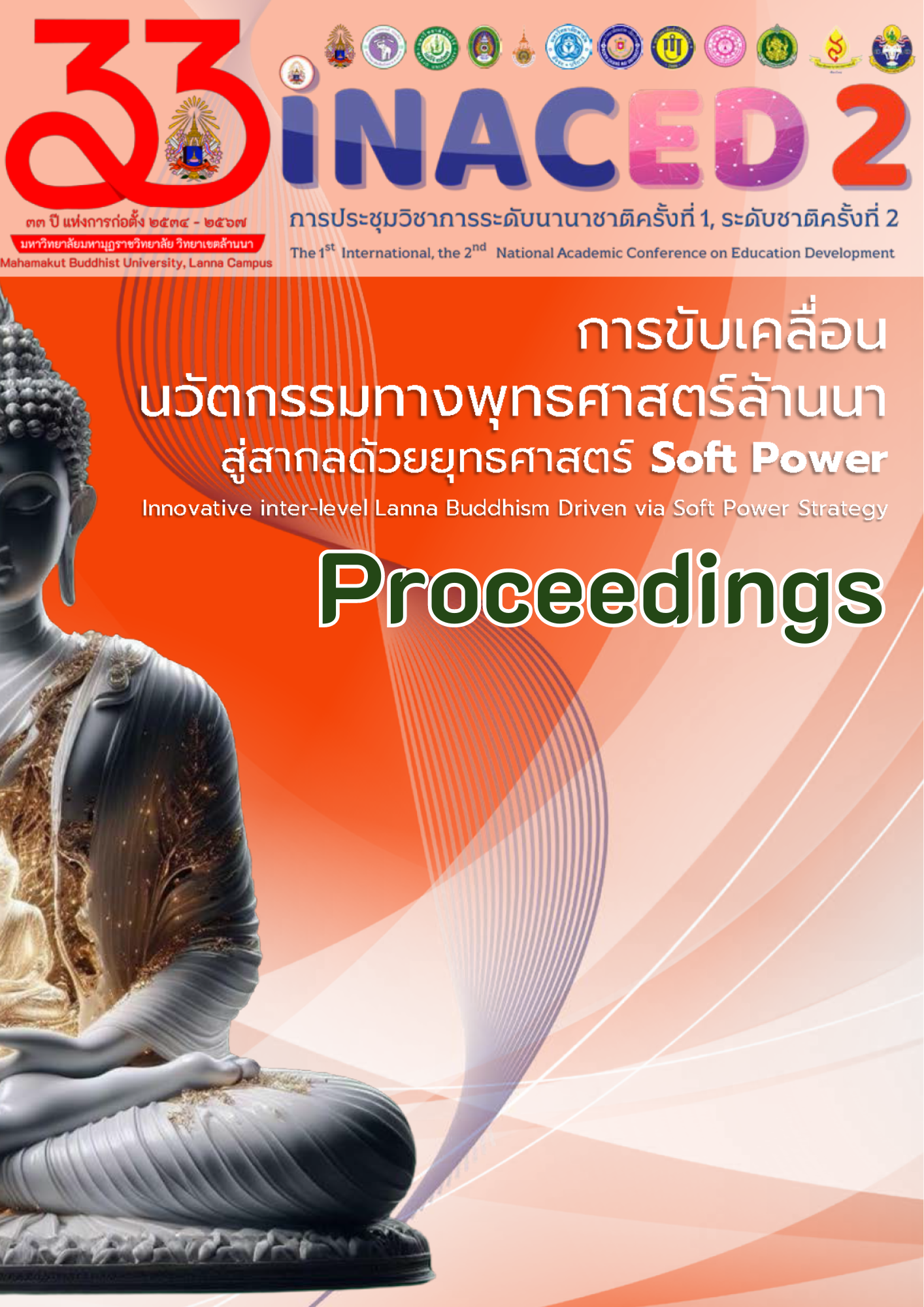Buddhist Philosophy for Developing the Good Citizenship of Thailand
บทคัดย่อ
The harmonious and peaceful society creating in Thailand that involves every citizen behaving as responsible members of a democratic monarchy under the reign of the King. The principles of good citizenship by Buddhist concepts are living by rules and discipline, being responsible, non-violence, kindness, and generosity, focusing on the common interest, truth speaking, abiding by Iddhipāda (The Four Paths of Accomplishment), Saṅgahavatthu (Principle of kindly treatment), Brahmavihāra (The Four Noble Sentiments), Sāraṇīyadhamma (States of conciliation) and the Five Precepts. These Dhamma principles are fundamental for societal coexistence and contribute to the development of a better Thai citizenry. Citizenship development must start in the individual mind before and become the good citizen. The individual must develop themselves integrally and following Sikkhāttaya (The Threefold Training): morality, concentration, and wisdom. There are the developing steps by Bhāvanā (The Four Principles of Practice): physical development, behavioral improvement, emotional growth, and intellectual enhancement to prepare individuals to become good citizens according to Buddhist philosophy.
บรรณานุกรม
Khammanee, K. (2017). Concepts of Buddhist Philosophy in the Literature the Story of Thao Chompoo, the Institute for Southern Thai Studies, Thaksin University Version. Journal of Humanities and Social Sciences Prince of Songkla University, 13(2), 129-130.
Na Rangsri, S. (2007). Buddhist Philosophy from the Tiipitaka. (3rd ed.). Bangkok: Chulalongkorn University.
Phathong, K. et al. (2018). Buddhism and Politics in Thai Society. Journal of Valaya Alongkorn Review, 8(1), 196-214.
Phonphichai, W. (2018). Characteristics of Good Citizenship of Faculty of Science and Fishery Technology Students at Rajamangala University of Technology Srivijaya Trang Campus. Journal of Humanities and Social Sciences, 9(1), 119-135.
Phra Akaradej Ñaṇatejo. (2014). Buddhist Philosophy of Education. Electronic Journal of Open and Distance Innovative Learning, 4(2).
Phra Brahmakunaphorn (P.A. Payutto). (2010). How to Develop Human?. Bangkok: Buddhadhamma Foundation.
Phrakru Sopanarattanabanthit. et al. (2020). Buddhist Philosophy in Developing the Quality of Life. Journal of MCU Nakhondhat, 7(5), 21-33.
Phuyothin, W. et al. (2011). Duty of Citizen, Culture and Living in Society. Bangkok: Aksorncharoenthad.
Sukhsantikamol, T. (2016). Social Changes in the Modern World. Journal of Humanities and Social Sciences Review, 18(1), 81-90.
Theerathampipat, M. et al. (2021). A concept of a Righteous King (Dhammarãjã) in Theravada Buddhist philosophy and the solution of the political problems. Journal of MCU Philosophy Review, 4(1), 65-82.
Yuyenpensuk, C. (2019). Study of Buddhist Philosophy for Sustainable Development. Journal of Liberal Art Rangsit University,15(1), 155-166.

